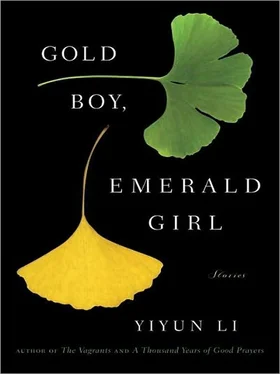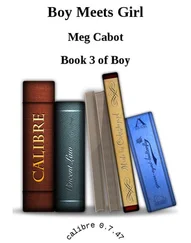Siyu worked as a librarian in a zoology institute, and her life had not changed much from that of a college student. In her mind, she might still be the eighteen-year-old who had set her alarm clock early so that by six o’clock she would be sitting on the bench under an ancient ginkgo tree in front of the biology building. At half past six, Professor Dai would arrive on her bicycle — a tall, rusty, heavy-built one that would have better suited a peasant or a street peddler — and she would nod at Siyu almost imperceptibly as she locked it up. It had taken two years for Professor Dai to cross the courtyard and ask Siyu about the thick volume she had been reading every day. Charles Dickens, Siyu replied, and then added that she was trying to memorize Great Expectations . Professor Dai nodded, expressing neither surprise nor curiosity at the task that had already made Siyu an eccentric in the eyes of her classmates. Siyu did not explain to them that her grandfather — her mother’s father, whom she had never met — had once memorized volumes of Dickens on the small balcony of a Shanghai flat, a feat that had eventually led him, before the liberation, to a high position in a bank run by Englishmen. It was Dickens who had in the end killed Siyu’s mother: As a daughter of the British capitalists’ loyal lapdog, she had hanged herself when her own daughter was four months of age, barely old enough to be weaned.
Hanfeng looked at Siyu’s face, detecting a familiar absentmindedness. His mother, too, asked him questions to which she seemed scarcely interested in knowing the answers. He wondered if this happened to women who lived by themselves. “Too many cars,” he replied, nonetheless — the standard response he gave when asked about his impression of Beijing these days. “I miss the bicycles.”
Hanfeng had returned from the States a month earlier. He had told his former colleagues in San Francisco about his intention to settle down in China, and they had joked about moving with him and becoming the forty-niners of the new gold rush. He went along with the joke, making up ambitious business plans that he knew he would not carry out. His mother was getting old, he explained to his friends; the thought that he, too, was no longer a young man in need of adventures he kept to himself. Semiretired was how he liked to think of his situation, but within days of returning to Beijing he realized that what he had made in the States at the tail end of the dot-com bubble would not be sufficient to support a life of idleness, as he had hoped. Still, he was not eager to go out and seek employment. He deposited half his money into his mother’s account and told her that he would take a break; she did not ask about his plans, in the same way that she had not questioned his decision to leave or to come home.
At seventy-one, his mother was as independent as ever, and she loathed most activities that a woman her age enjoyed: taking morning walks with a companion, gossiping and bargaining at the marketplace, watching soap operas in the afternoon. Hanfeng had never wondered how his mother spent her days in retirement until his return, when, all of a sudden, the three-bedroom flat that must have seemed empty to her became crowded. He had been the one to cook for the two of them when he was a boy, dividing the meals in half and eating his portion alone; his mother, her preoccupation with her research a ready excuse, had eaten at odd hours then. Since his return, he had taken over the cooking again, and now that neither of them was eager to go out into the world to fulfill any duty, they ate together.
The idea of renting a flat had occurred to Hanfeng, but as soon as the thought formed he dismissed it as a waste: He had left for America right after college, a move intended to claim a place for himself — a whole continent, in the end, as in twenty years he had drifted from New York to Montreal, then Vancouver, and later San Francisco — and a life that had to be lived away from a mother, but with the return to China he no longer felt the urgency to have his own place. Freedom is like restaurant food, he once told an old friend in the States, and one can lose one’s appetite for even the best restaurants. Pure nonsense, replied his friend, who, unlike Hanfeng, had long ago settled down with a partner, a house, and two dogs, and talked of adopting a baby. Take a break, he said, urging Hanfeng to return to California after he refreshed himself with his homemade dumplings and noodles. Hanfeng, however, could envision himself living a bachelor’s life in his mother’s flat, reading the same newspapers and comparing notes on the stories that interested them both, wandering freely through the flat when she went out for her piano lessons twice a week.
The piano was the only thing that kept his mother actively engaged with the world. Soon after Hanfeng’s return, she had asked him to go to a recital she was playing in, at a local music school. It was attended by men and women Hanfeng’s age, who seemed nervous when their well-trained and nicely dressed children took the stage. His mother was the only one who went up without a puppetlike show. She gazed at the sheets of music for a long moment, then started to pound on the keys with a seriousness that took Hanfeng by surprise. He had thought the piano was merely a retirement pastime for his mother, and had protested mildly when she mentioned that her goal was to be good enough one day to play four-hand with him. Hanfeng had not told her that he was no longer playing, even though a rented piano had always been the first piece of furniture to fill an empty flat in each city he moved to. Small children giggled in the audience, and a few older ones smirked, pitying the old woman for her stiff arthritic fingers, which would never again be as good and agile as theirs. Some parents shook their heads at their children disapprovingly, and it occurred to Hanfeng that he was becoming a parent for his mother, that he would be the one to protect her from the hostility of the world.
The thought baffled him. His mother had always been a headstrong woman, and with her grayish-white mane and unsmiling face, she appeared as regal and intimidating as she had ever been. Still, seeing her through other people’s eyes, Hanfeng realized that all that made her who she was — the decades of solitude in her widowhood, her coldness to the prying eyes of people who tried to mask their nosiness with friendliness, and her faith in the notion of living one’s own life without having to go out of one’s way for other people — could be deemed pointless and laughable. Perhaps the same could be said of any living creature: a caterpillar chewing on a leaf, unaware of the beak of an approaching bird; an egret mesmerized by its reflection in a pond, as if it were the master of the universe; or Hanfeng’s own folly of repeating the same pattern of hope and heartbreak, hoping despite heartbreak.
Siyu asked a few more questions, and Hanfeng replied. When there was nothing much left to say, he curled his fingers around the teacup and studied its shape, and Siyu pictured him as a young boy, spreading his slender fingers on the cold keys of a piano. His mother must have told him, when he complained about the open windows in the winter, that playing would keep the blood circulating in his hands. Siyu did not know why she imagined that; it was as unfounded as all the other things she had made up about him. In Professor Dai’s flat, there were framed snapshots of Hanfeng playing in piano contests at five, eight, ten, fifteen. There were snapshots of him when he had first arrived in America, with his bright-colored T-shirt, long and flying hair, and broad smile, as picturesque and unreal as the Statue of Liberty in the background.
Siyu had been eighteen when she first saw those photographs, when she was sent as a representative from her class to deliver a New Year’s present to Professor Dai. No one had wanted that job; Professor Dai’s coldness was known to be hurtful, and it made sense that Siyu, with her mild eccentricity, would be the one chosen. But that day, to Siyu’s surprise, Professor Dai did not simply dismiss her from the doorway, even though she immediately placed the present, a framed painting of a golden carp, next to the wastebasket. Instead, Professor Dai invited Siyu into the flat, moved the papers that covered the dining table onto the piano bench, and let Siyu sit while she went to the kitchen to make tea. Her son was the one who played the piano, Professor Dai answered when Siyu asked, and pointed out the pictures of Hanfeng. Very vaguely, Siyu had thought that he was the kind of boy she would like to have as a boyfriend, a prize badge that she could wear to make other girls jealous. Years later, she knew it was not the thought of the boy that had made her wait on the bench outside the biology building in the mornings during college; nor was he the reason she continued to befriend Professor Dai in a manner allowed by the older woman. Occasionally, Siyu would carefully study the pictures of Hanfeng in Professor Dai’s flat, and when they ran out of things to say about animals she would ask about his life in America. When Professor Dai called and asked her to meet Hanfeng, Siyu wondered if the matchmaking had come as a result of a beguiling impression she had left of her interest in a good-looking bachelor.
Читать дальше
Конец ознакомительного отрывка
Купить книгу












